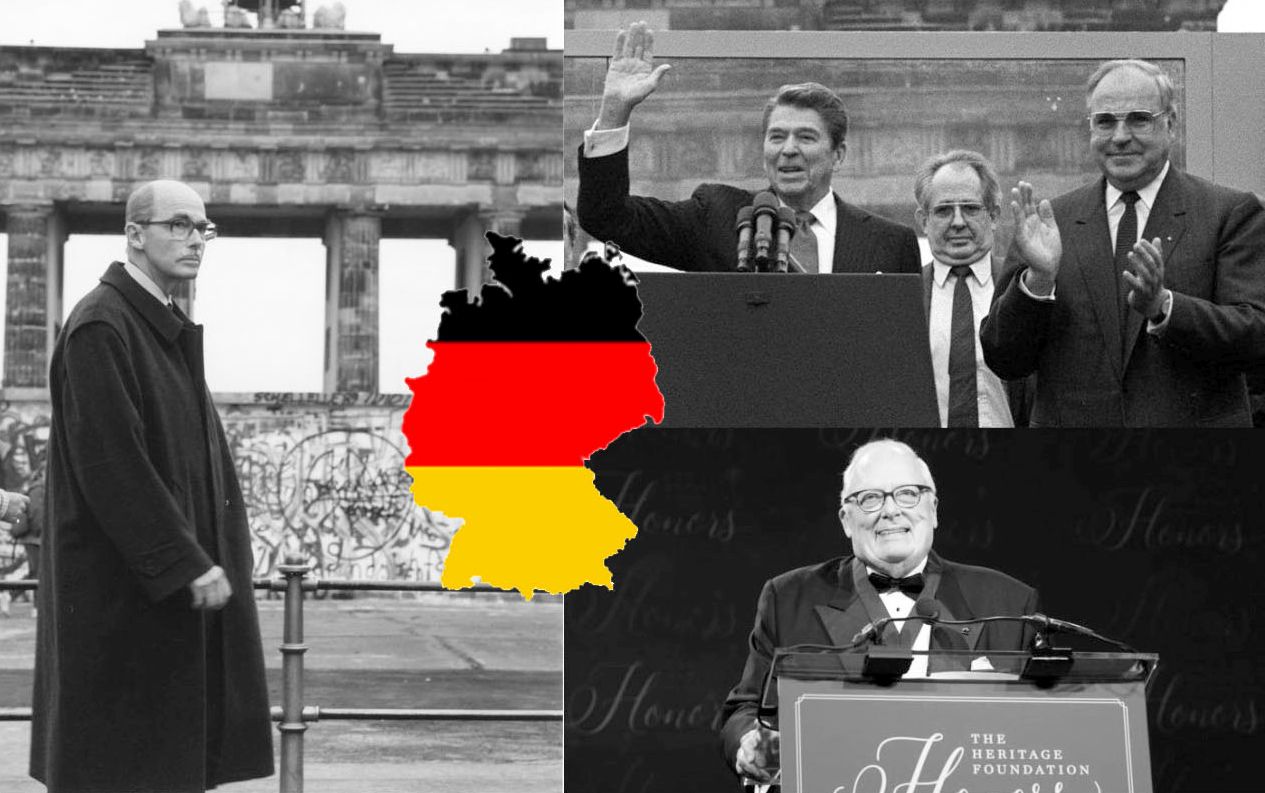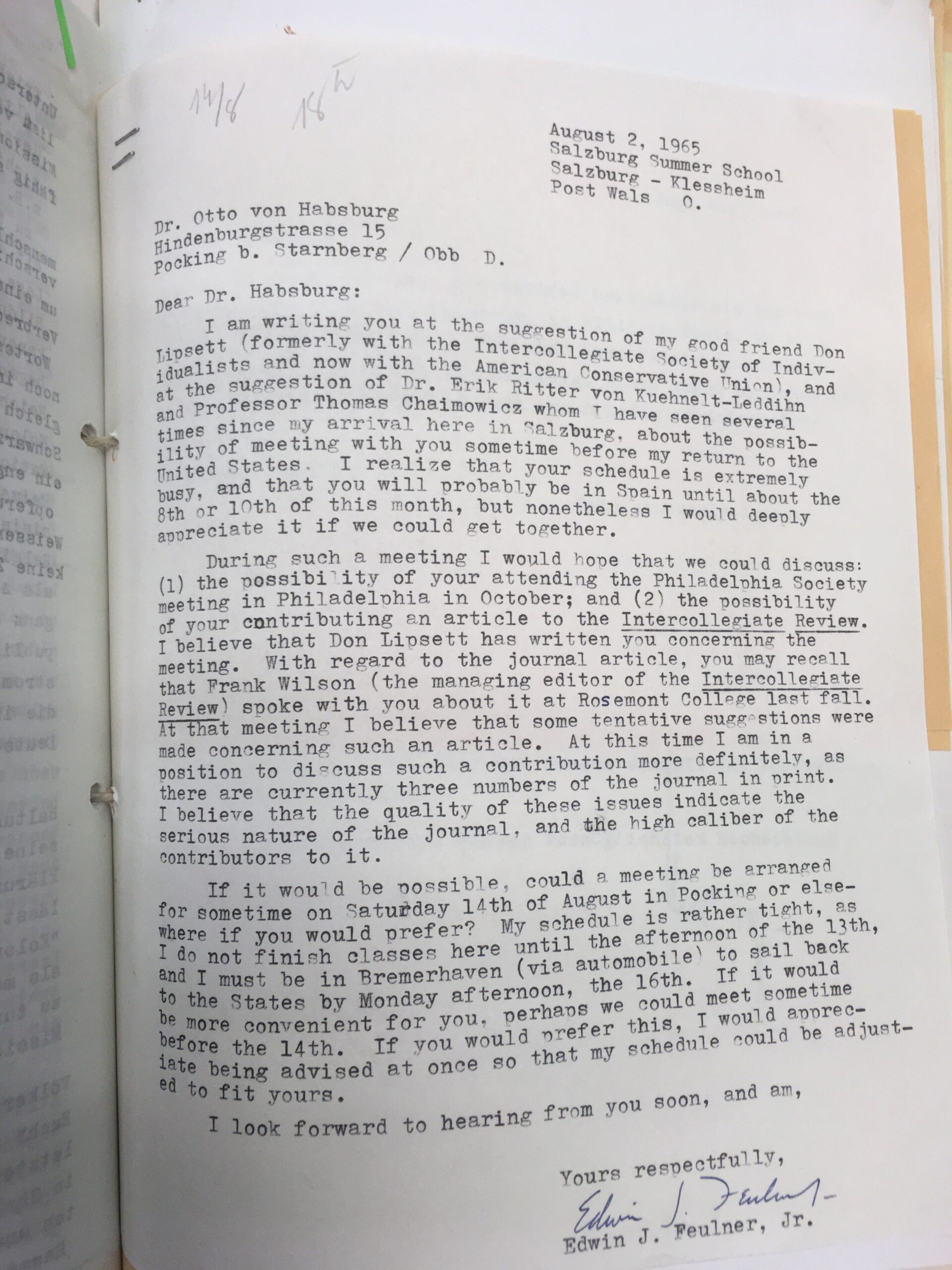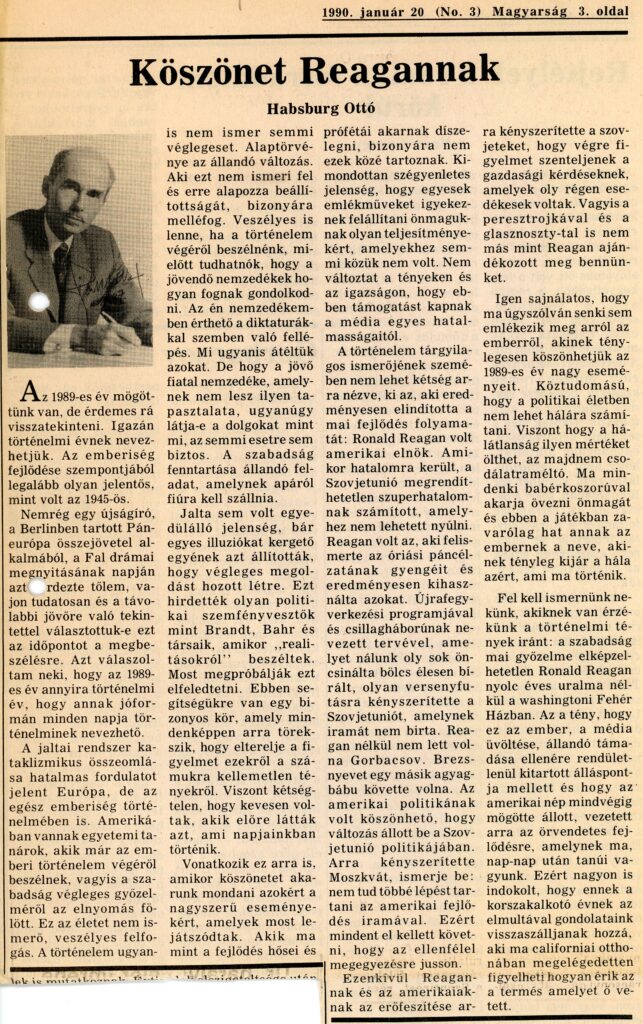Feulner was president of the Heritage Foundation from 1977 to 2013. He was the one who built the organization, who brought it closer to current political events so much so that Ronald Reagan’s 1980 winning election program also largely was in the hands of Feulner and his colleagues. Upon learning of the existence of a collection of Otto von Habsburg’s archival legacy, Feulner visited us and recalled his memories of the late Crown Prince, including his visit to Pöcking in 1965, where he arrived interrupting his German language course in Salzburg.
We found and handed him the letter he initiated at the start of this visit, and he asked his staff at the foundation to send him Otto von Habsburg’s study, which Feulner had forwarded the request to write, and which he called key to Central and Eastern Europe in terms of the development of American conservative political thinking. “The Effects of Communism on Cultural and Psychological Politics in Eastern Europe” appeared in the autumn 1966 issue of The Intercollegiate Review, which he also edited.
IR_03.01_Habsburg_Sept.-Oct.1966
The text worth reading. Feulner was most impressed at the time by Otto’s conviction about the fall of the communist regime barely a year after the Berlin Wall was built, which he said would not be due to political, security or economic difficulties, but because the human psyche would not can be shackled. Ed Feulner said this idea also inspired the Reagan policy of the 1980s, a prime example of which was the US President’s speech on June 12, 1987, on the west side of the Brandenburg Gate.
The speech is an excellent summary of Ronald Reagan’s policy with harsh anti-Soviet rhetoric, repeated exaltation of freedom and peace, an emphasis on the natural connection between people, the importance of love that cannot be blocked by the closed Brandenburg Gate or the Berlin Wall.
Otto von Habsburg has addressed the idea of German reunification in several articles and studies, which he saw as an essential necessity in the process of regime change. This is indicated by his patronage in the organization of the Pan-European Picnic, which was a clear opening for the process leading to German unity through the arrival of a large number of East German citizens in Austria. For him, all this meant the reunification of Europe, so it is almost fateful that Otto was in Berlin at the meeting of the Pan-European Union when the Berlin Wall fell on 9 November 1989. The ensuing 2-4 talks between the two Germany and the representatives of the Allied Powers opened up the possibility of the German Democratic Republic merging into the Federal Republic of Germany on 3 October 1990, and also these talks made it possible for the united Germany to become a member the European Union and the NATO.
At the turn of 1989–90, when the popular topic of journalism was “annus mirabilis”, that is, that the 1989 turn was in fact a miracle, being faithful to his unadulterated real-political nature he wrote an article entitled “Acknowledgement to Reagan” in Magyarság. “It’s very unfortunate,” he writes, “that today, so to speak, no one remembers the man to whom we can actually owe the great events of 1989.” He then goes on to say, “We, who have a sense of historical facts need to recognize: today’s victory of freedom is unthinkable without Ronald Reagan’s eight-year rule in the White House in Washington.”
Otto fondly quoted Helmut Kohl’s bon mot, according to which there is Hungarian land under the Brandenburg Gate. The sources are not about whether Otto was aware of his impact on the ideology of the Heritage Foundation, which shaped President Reagan’s policy. In any case, the improbability of the lasting survival of the communist regime was hardly recognized by anyone before him.
Gergely Prőhle



